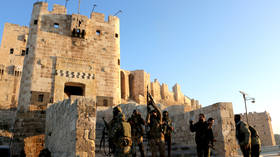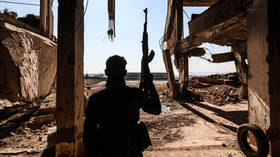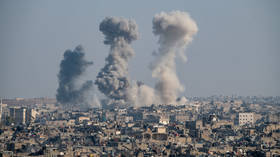As militants transfer on town of two million, Damascus’ army weak point and Tehran’s inaction increase questions in regards to the future
By Lisa Issac, Worldwide Relations Specialist, Adyghe State College
The current escalation in northwest Syria has positioned Aleppo on the heart of renewed battle, following clashes that broke out shortly after a ceasefire was introduced in Lebanon. This surprising flare-up marks the start of a brand new section of violence not seen in 4 years, as a coalition of armed teams, together with the Türkiye-backed Syrian Nationwide Military and jihadist factions just like the Levant Liberation Group (previously Jebhat al-Nusra), launched a calculated offensive on town of over two million inhabitants.
The battle for Aleppo is about extra than simply town itself. It’s a microcosm of the broader regional energy struggles which have outlined Syria’s civil warfare. This renewed offensive calls into query the soundness of the area in addition to the efficacy of diplomatic efforts by the remainder of the world. Regardless of worldwide makes an attempt to dealer peace, Syria stays deeply divided and now, greater than ever, the geopolitical stakes in Aleppo couldn’t be greater.
In a well-coordinated assault, fighters from a number of militant teams entered town’s western suburbs, advancing towards Saadallah al-Jabri Sq., the symbolic heart of town. This marks a shift in technique, as these teams had already seized important territory within the north and west of Aleppo, in addition to elements of jap Idlib. For a lot of locals, the speedy advance of militants is a stunning growth, a grim reminder that peace continues to be removed from attain.
The Syrian military’s response has been underwhelming. Its protection ministry issued a press release acknowledging a “large-scale” and “surprising” assault by opposition forces however did not current a convincing counteroffensive technique. Studies have additionally surfaced of airstrikes by Russian and Syrian forces focusing on the availability routes of militants within the suburbs of Aleppo and Idlib. These efforts might not tip the stability, casting doubt over Damascus’ capability to carry off the insurgents within the face of this new wave of aggression.
Syria’s second-largest metropolis, Aleppo is each an financial hub and an important stronghold for the federal government’s management over the nation. Its seize by extremist teams could be a devastating blow to Damascus’ authority. Located lower than 200 miles (310 kms) from the capital, the traditional metropolis holds each symbolic and strategic significance. Its fall would shift the stability of energy in Syria and would severely weaken the federal government of Bashar Assad.
What makes this newest battle much more complicated is the function of Iran, whose forces have a big presence in Syria. Regardless of the massive variety of Iranian army services – together with 52 army bases and 177 further websites in Aleppo – Iranian forces have did not take decisive motion in opposition to the advancing terrorist teams. This inaction raises questions on Tehran’s technique in Syria, as its army infrastructure appears more and more weak to assaults from extra agile opposition forces.
Why has Iran, with its substantial army presence, did not counter these teams successfully? The absence of air assist and a broader reliance on Syrian infrastructure may very well be main components on this failure. On high of those shortcomings, Iranian forces have been hesitant to have interaction instantly, maybe because of the bigger geopolitical context and to the looming risk of Israeli and worldwide coalition strikes. This strategic hesitation is permitting teams labeled as terrorist organizations to infiltrate Aleppo with little resistance.
In the meantime, Damascus has been compelled to acknowledge the worsening state of affairs, asserting that it will be bolstering army provides to strengthen its place. Nevertheless, these efforts appear reactive moderately than proactive, an indication that its army technique is more and more on the defensive.
The shock insurgency casts severe doubts on the viability of the 2020 ceasefire settlement brokered by Russia and Türkiye. It highlights the deal’s fragility and, because the combating intensifies, the area’s stability hangs within the stability. Worldwide diplomacy’s failure to carry a few lasting decision in Syria can be evident. UN Particular Envoy Geir Pedersen’s assertion a few “political stalemate” echoes a broader international frustration over lack of progress. Efforts at battle decision have been stymied by inertia and competing pursuits, making everlasting peace appear more and more distant.
Regionally, Turkish President Recep Tayyip Erdogan’s makes an attempt to open dialogue with Syrian President Bashar Assad have additionally stalled. Erdogan has expressed a want for normalization, which he claims would pave the best way for peace in Syria. But, no important steps have been taken towards this purpose. Türkiye, which has taken in over three million refugees from Syria, faces mounting strain on each the human-displacement entrance and in its ongoing battle with Kurdish teams. Any severe progress towards peace should contain dialogue between Ankara and Damascus – a component nonetheless lacking from the present technique.
Türkiye has a rising army presence in Syria, with 12 bases and 114 army websites, together with a big focus in Aleppo and Idlib. Whereas Iranian forces stay bigger in quantity, Ankara’s army capabilities – significantly in air protection, artillery, and fashionable communications know-how—make it an more and more influential participant within the Syrian battle.
This shift in energy dynamics has allowed Türkiye to bolster its place in Syria, with a capability to manage numerous armed teams beneath its patronage, although it doesn’t formally acknowledge this. By means of its actions, Ankara is consolidating its affect, significantly in Aleppo, the place it’s positioned to play a central function within the battle’s future trajectory.
The geopolitical wrestle is intensifying. The Syrian battle and, particularly, the battle for Aleppo displays the broader wrestle for affect between regional powers like Türkiye and Iran. Ankara’s army engagement in Syria is more likely to proceed to increase, as its affect turns into more and more important to the area’s future stability.
Israel’s longstanding issues in regards to the rising affect of Iran-backed forces close to its borders have turn out to be extra pressing as Syria’s inner battle drags on. In response, the Jewish state has positioned itself as a key participant in shaping the regional safety panorama, taking a extra proactive stance to counter the enlargement of Iranian affect.
This shift in Israeli technique aligns with a broader US strategy that’s doubtless beneath the incoming Trump administration, which is able to prioritize countering Iran and strengthening ties with regional allies like Israel. With a possible re-engagement of a Republican-led administration, Israel’s strategic pursuits and its shut partnership with the US may drive coordinated actions in Syria, influencing each native and overseas actors.
Will the state of affairs in Syria in the end drive a shift in regional energy buildings? Might Türkiye’s rising function sign the tip of Iranian affect there? Additionally, as Aleppo turns into a battleground for broader geopolitical struggles, what function will Israel and the US play within the ultimate end result?
The battle for Aleppo is way from simply one other army conflict – it’s the point of interest of an influence wrestle that includes not solely Syria’s destiny but in addition the geopolitical way forward for the Center East.
This text was initially printed in Russian on Russia in World Affairs, translated and edited by RT.






